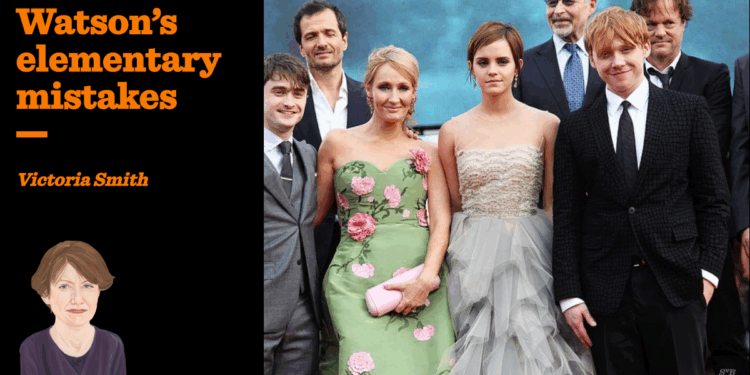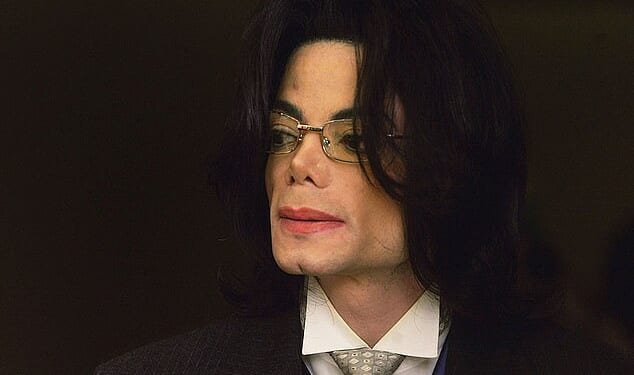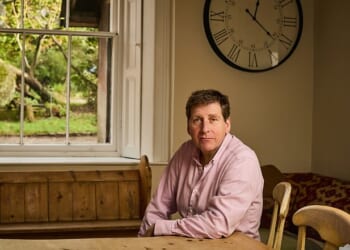Writing about Emma Watson and feminism feels like kicking a puppy. Obviously it shouldn’t. She’s a highly privileged thirty-five year old woman who’s had the time and resources to engage with the movement in ways most of us lack. Her feminism, nonetheless, seems stuck at a Hogwarts-era stage.
Said feminism has been back in the spotlight after she appeared on a podcast speaking about JK Rowling. Like the other main members of the Harry Potter cast, Watson has been at pains to distance herself from the author’s views on sex and gender. That doesn’t mean, she now says, that she doesn’t love Rowling. “It’s my deepest wish,” she told interviewer Jay Shetty, “that I hope people who don’t agree with my opinion will love me, and I hope I can keep loving people who I don’t necessarily share the same opinion with”. That’s nice, isn’t it? It takes a true saint to join in the monstering of another human being and to love the monster all the same.
It’s fair to say Rowling has been less than grateful for these scraps from the table. I’d imagine Watson’s words felt quite triggering, given the way in which her siding with the mob was also transmitted through sugary expressions of love and kindness. The hypocrisy was captured in a spoof video by Intel Lady, shared by Rowling with the words “I’m here for ALL the spoofs” (a play on Watson’s apparent “here for ALL of the witches” dig at the 2022 BAFTAs):
I hold space for her so much and so much love in my heart for her and I would hope that she felt the same way about me. But also I stand shoulder to shoulder with those who would wish harm on her, hate her and would wish the absolute worst for her in her life
Rowling has been deemed ungracious for sharing this, but there’s something exquisitely cruel about her being expected to accept such a pathetic olive branch. Once again, Watson gets to be soft, gentle, feminine, while Rowling — the only one of them who actually challenges gender norms — is seen as unyielding and unforgiving. It is, in many ways, a classic feminist play-off, one which has only become more exaggerated in recent years.
Trans activism has always claimed to be at the forefront a younger, more progressive politics
While Watson’s refusal to stand by Rowling was no more cowardly than that of Daniel Radcliffe or Rupert Grint, it was always more significant. Trans activism has always claimed to be at the forefront a younger, more progressive politics, one which will eventually replace that of an older generation whose “bigoted” views will die out with them. It’s a view seemingly endorsed by the sight of the Harry Potter trio kicking out at their former mentor. With Watson in particular, though, this fitted into with a longstanding narrative about feminism, one which positions it as a movement primarily for young women, in which older women are invariably found to have been ignorant and lacking.
According to books such as Sophie Lewis’s Enemy Feminisms (subtitle: “Terfs, Policewomen, and Girlbosses Against Liberation”), feminist history is littered with terrible women — exclusionary suffragettes, sexphobic second wavers — who are thankfully either dead or old. A better feminism — one which doesn’t engage in such “eco-fascistic” practices as thinking lesbians can have their own sexual boundaries — is just around the corner. Once the Watsons replace the Rowlings, feminists can have everything they ask for (easy, because everything will be nothing at all). The only trouble is, there have always been new Rowlings (many of them former Watsons) taking their place.
As I argued in my book Hags, the drive to position the “gender critical” feminist as behind the times, soon to be replaced by “proper” (and younger) feminists, is part of a centuries-old cycle. It’s intrinsic to the functioning of the feminist backlash. A combination of ageist misogyny and “arc of progress” delusions ensure that knowledge is not passed on and analysis is misrepresented. “By this means,” wrote Dale Spender back in 1982,
… women are ‘kept in the dark’, with the result that every generation must begin virtually at the beginning, and start again to forge the meanings of women’s existence in a patriarchal world, so that in Catherine Stimpson’s terms, every fifty years women have to reinvent the wheel.
What we are experiencing now has happened before (although I’d say that getting everyone to agree that sex is binary, immutable and politically salient before we even get to distinguishing it from gender is some pretty extreme wheel-reinventing).
For “progressive” misogynists, the symbolism of a young Emma Watson denouncing an older JK Rowling was irresistible (witness the number of “old fucking hag” references in amongst rape threats here). It reminded me of members of my own generation (myself included) denigrating second wave “anti-porn” feminists based on the idea that these “old” women simply held conservative beliefs about sex (a similar myth to that of “gender critical” women holding conservative beliefs about gender). “Nobody,” as Ariel Levy put it in 2005’s Female Chauvinist Pigs, “wants to be the frump at the back of the room anymore, the ghost of women past”:
… If you still suffer from the (hopelessly passé) conviction that valuing a woman on the sole basis of her hotness is, if not disgusting and degrading, then at least dehumanizing, if you still cling to the (pathetically deluded) hope that a more abundant enjoyment of the “sex stuff” could come from a reexamination of old assumptions, then you are clearly stuck in the past (and you’d better get a clue, but quick).
This is the ready-made template into which the behaviour of Watson and, more recently, other female performers such as Kate Nash and Jade Thirlwall can be slotted. There’s no great philosophising going on, no actual effort on their part to investigate and engage with the arguments of the women they vilify. They can simply self-identify into being better and kinder (because what the hell has mean, old-style feminism achieved, apart from every single tangible feminist gain?).
I am not without sympathy. I was a crap, “here to replace the old guard, to whom I’ve never actually listened” feminist back in the days when there was no social media, and if you did get called names for saying no to men, rarely were you accused of promoting genocide. And in any case, as Seán Atkinson has pointed out, the vicious response to Watson now showing anything other than hate towards Rowling has been “enough to get her branded a TERF”. “Watson,” writes Atkinson, “is one of the most visible celebs flying the flag for trans ideology”:
But if the last few days have shown us anything, it’s that unless you’re fully on your knees, swinging the incense, and worshipping at the altar of the new gender religion, you’ll be cast out just the same.
This is true. It’s also true that in an ideal world no woman in the public eye would have to make the choice between backing those who abuse former allies (and betraying less privileged women), or being treated the way Rowling has for the past five years. Those are the choices, all the same. The ideal world is one in which there’d be no need for feminism anyways.
I’ve no idea what Watson really believes about sex and gender. Statements such as “trans people are who they say they are and deserve to live their lives without being constantly questioned” are vague to the point of meaninglessness (even if they manage to imply that all those who go beyond vagueness are, for no apparent reason, hellbent on stopping others “living their lives”). Her expressed hope to “keep loving people I don’t share the same opinion with” would be more credible if it was clear on what grounds she disagreed with Rowling’s views. Should these views have been portrayed as hate or shouldn’t they? Did they merit the backlash?
If the answer to that is yes, they did, then I’m not sure why anyone should want to be “loved” by a person who thinks so little of them. And if it’s no, then Watson should be willing to mark out some genuine common ground. You are, to quote Mary Daly, going to be “punished just as much for being an itty-bitty feminist as for going the whole way”. So why waste any more time?











